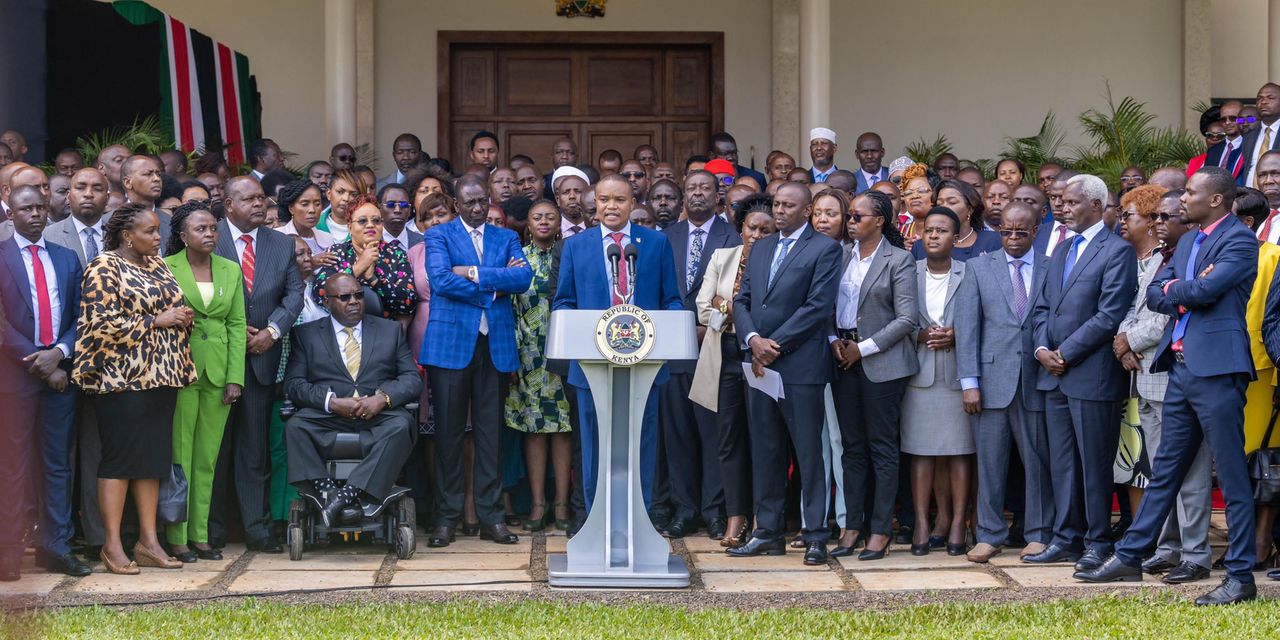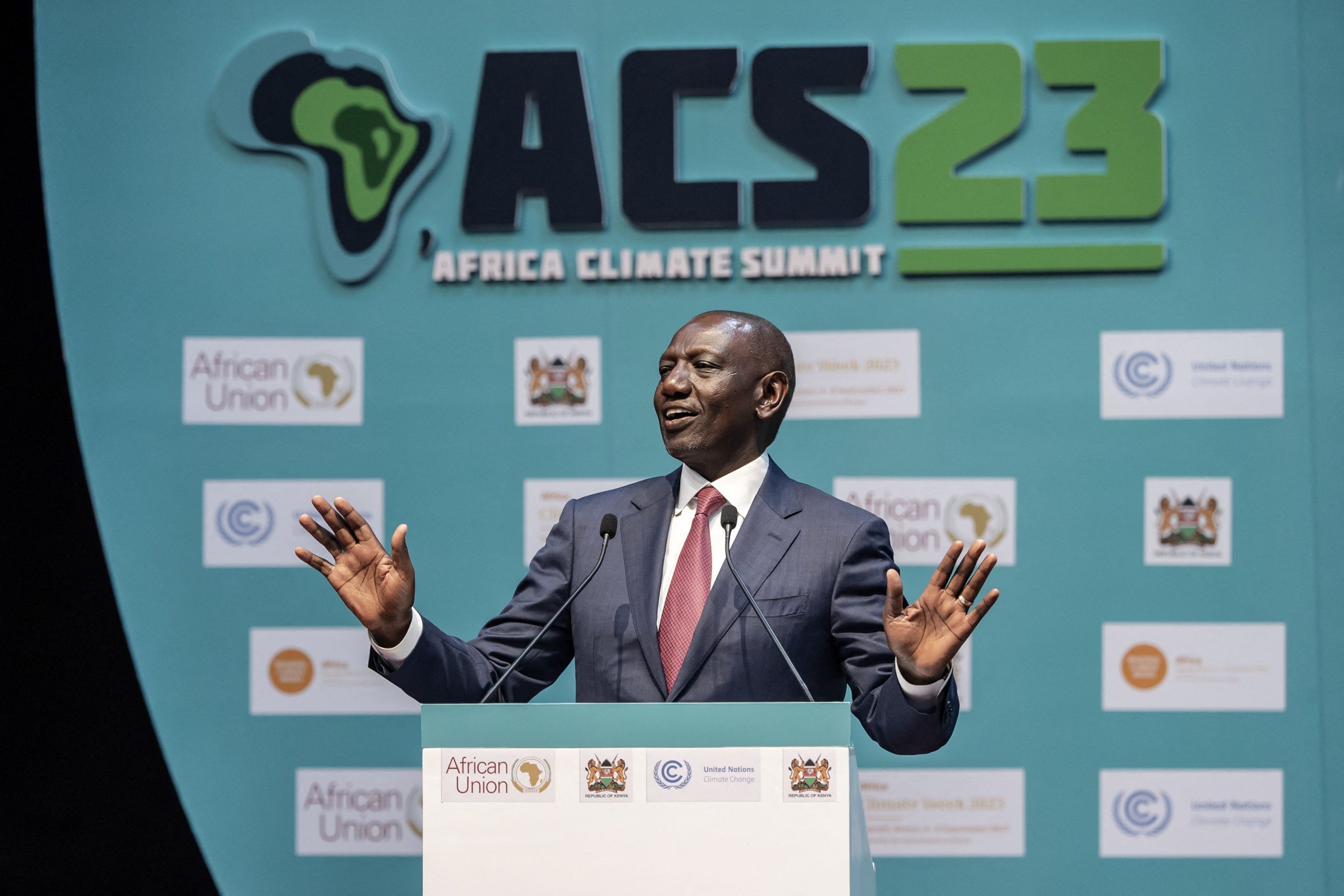
The contentious Kenya 2024/2025 budget proposals seems to erode gains made towards sustainable public transport in Kenya. The National Treasury proposes to apply 16% value added tax (VAT) on the supply of electric buses. If adopted, the budget proposals will make public transport unaffordable to many Kenyans, and slow down uptake of electric buses.[1] The high cost of electric vehicles is a key barrier to their adoption especially in Africa. Could this be a missed opportunity by Kenya to lead in creating the future of clean electric public transport in Africa? This commentary highlights past unfulfilled commitments and missed opportunities for the government of Kenya to provide safe, dignified, affordable and sustainable public transport to all Kenyans as a guarantee of the citizen’s right to freedom of movement under Article 39, section 1, of the Constitution of Kenya.
Since 2022 Kenya has taken a prominent lead on climate change conversations in Africa, led by President William Ruto. In September 2023, the capital city of Nairobi hosted the Africa Climate Summit(ACS), where representatives at the conference urged leaders to make “ambitious pledges and commitments” to combat climate change.[2] Heads of State and Governments on their part made a declaration urging the international community to assist Africa in accelerating efforts to decarbonize the transport, industrial and electricity sectors. This was to be achieved through the use of smart, digital and highly efficient technologies such as green hydrogen, synthetic fuels and battery storage.[3]

This year, the spotlight was on Kenya to “walk the talk” and align the country’s budgetary targets with international climate commitments. In last year’s Finance Act, the government zero-rated VAT on the supply of electric buses, electric bicycles, electric motorcycles and lithium batteries.[4] In the 2024/2025 budget proposal, the government proposes to revert to 16% VAT. Moreover, the proposed but later dropped extra 2.5% motor vehicle annual tax would have further increased the cost of operation for public service vehicles, especially the matatus. This is the preferred mode of transport by many commuters in Kenya. More than half of all commuter trips in the cities depend on matatus for their travels.[5]
Additionally, in last year’s budget, the government allocated Ksh 1.1 billion for Nairobi Bus Rapid Transport (BRT) Project. However, no change is observed to the city’s BRT network since. In the National Climate Change Action Plan 2023-2027, the government indicated that it would start funding electric mobility projects starting from last year’s budget. It promised that it would allocate 20 million shillings to set up public charging stations for electric vehicles, 400 million for setting up assembly plants for electric boda bodas and tuk tuks, and 60 million shillings for E-mobility policy and requisite frameworks to be developed and implemented by 2024/2025. However,in this year’s proposed budget, the government has only earmarked Kshs 1.0 billion for Nairobi Bus Rapid Transport Project and Ksh 316 million for Promotion of E-Mobility Project. This latter project is unspecified, and Kenyans will have to wait to see what e-mobility project the government intends to promote.

Kenya estimated it needed $17.7 billion for climate change mitigation between 2020 and 2030. International support was expected to cover $14 billion of this budget, in line with Kenya’s Nationally Determined Contributions (NDC) submission to the United Nations Framework Convention on Climate Change.[6] If the proposals in the Finance Bill 2024 are adopted, Kenya will be the first country in Sub-Saharan Africa to backtrack on commitments made in COP28 to initiate deep, rapid and sustained reductions in greenhouse gas emissions in line with 1.5 °C pathways.[7] Other countries like Ghana and Rwanda have taken bold fiscal and non-fiscal policy measures to drive adoption of electric vehicles, especially for public transport.[8]
To achieve climate commitments outlined in the NDC, Kenya will have to reduce 43 million tons of carbon dioxide equivalent (CO2e) emissions by 2030. The National Climate Change Action Plan 2018-2022 (NCCAP) suggests that without changes in transport de-carbonization efforts, road transport emissions will rise by 9 million tons CO2e between 2020 and 2030.[9] Despite previous commitments, Kenya has missed several opportunities to transform road transport. The Africa Climate Summit and COP28 served as catalysts for Kenya to move beyond rhetoric. However, with the 2024 budget removing previous incentives, the Ministry of Roads and Transport will not achieve its vision to “position Kenya as leader in electric mobility transition in Africa.”[10] To demonstrate leadership, the government of Kenya must back its words with financial commitments to transform public transport, like what other East African states are doing.

In the 2024/2025 financial year, Tanzania proposes to remove excise duty on electric cars (that aren’t utility vehicles) and cars that run on Compressed Natural Gas (CNG). In addition, the government has proposed a 0% duty on buses that can carry more than 25 people. This applies to buses imported for a rapid transport project and will last for one year.[11] Equally, the government of Uganda is offering tax holidays on the income of anyone who manufactures electric vehicles, motorcycles, batteries, and charging equipment. Under VAT, electric motorcycles, vehicles made in Uganda, their charging stations, and related services are tax-exempt.[12]
For example in this regard, to provide safe, dignified, affordable and sustainable public transport to all Kenyans as guaranteed under the Constitution, the government needs to implement the 2023-2027 National Climate Change Action Plan (NCCAP). Budget allocations should indicate investment to actualize: 70 km of the Bus Rapid Transit (BRT) for Nairobi metropolitan area; Matatu operations/public transport operations should also be upgraded through fleet upgrading to more efficient vehicles and there will be need to deploy over 1,000 electric buses and charging infrastructure in the country. Removal of tax incentives as proposed in the current 2024 Finance bill will only claw back gains made in the e-mobility sector.
Notes
[1] Finance Bill, 2024 – Nairobi
[2] Africa Climate Week & Summit 2023
[3] The African Leaders Nairobi Declaration on Climate Change and Call to Action
[5] Commuting in Urban Kenya: Unpacking Travel Demand in Large and Small Kenyan Cities
[6] National Climate Change Action Plan 2018-2022 (NCCAP)
[7] Outcome of the first global stocktake
[8] Rwanda Ministry of Infrastructure: Strategic Paper on Electric Mobility Adaptation 2021
[9] National Climate Change Action Plan 2018-2022 (NCCAP)
[10] Draft National e-mobility Policy
